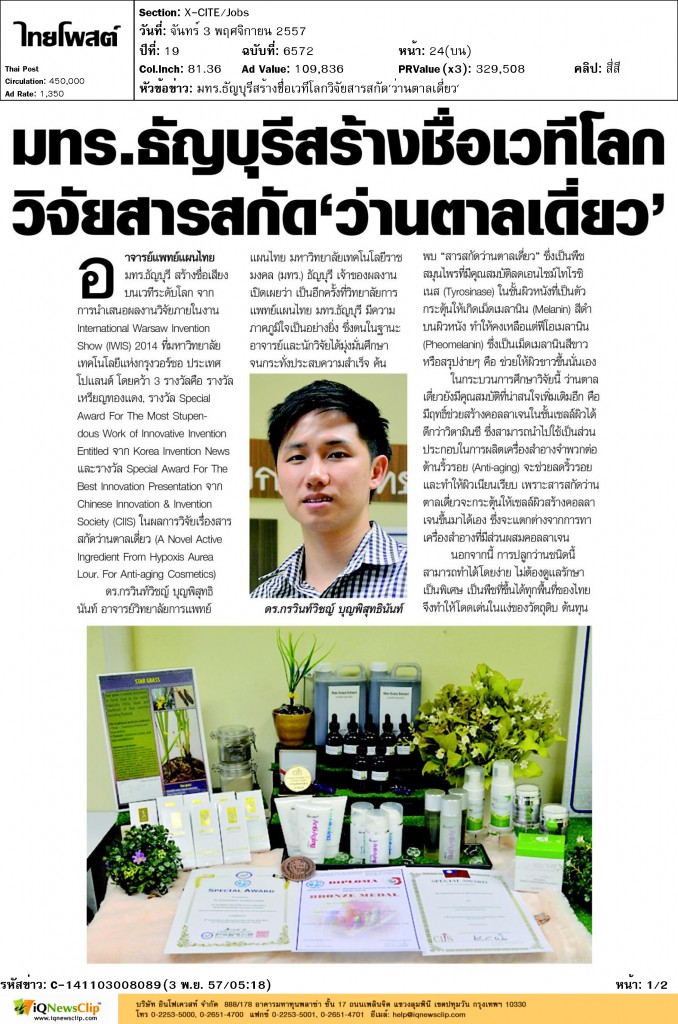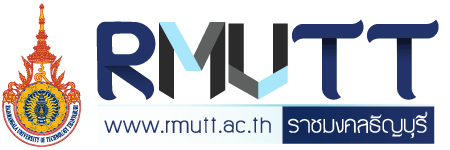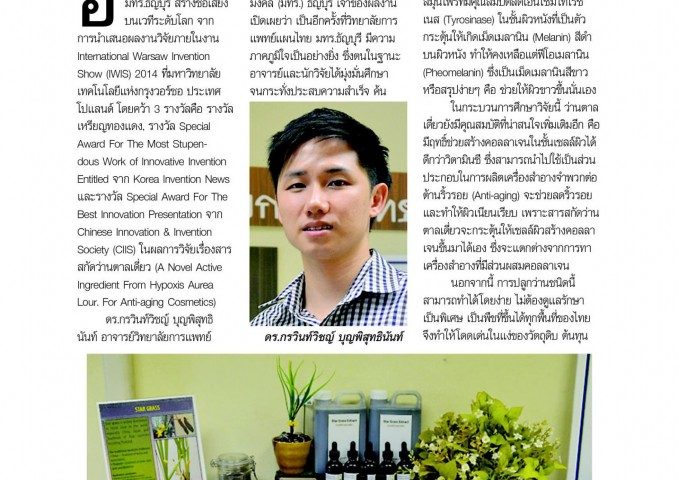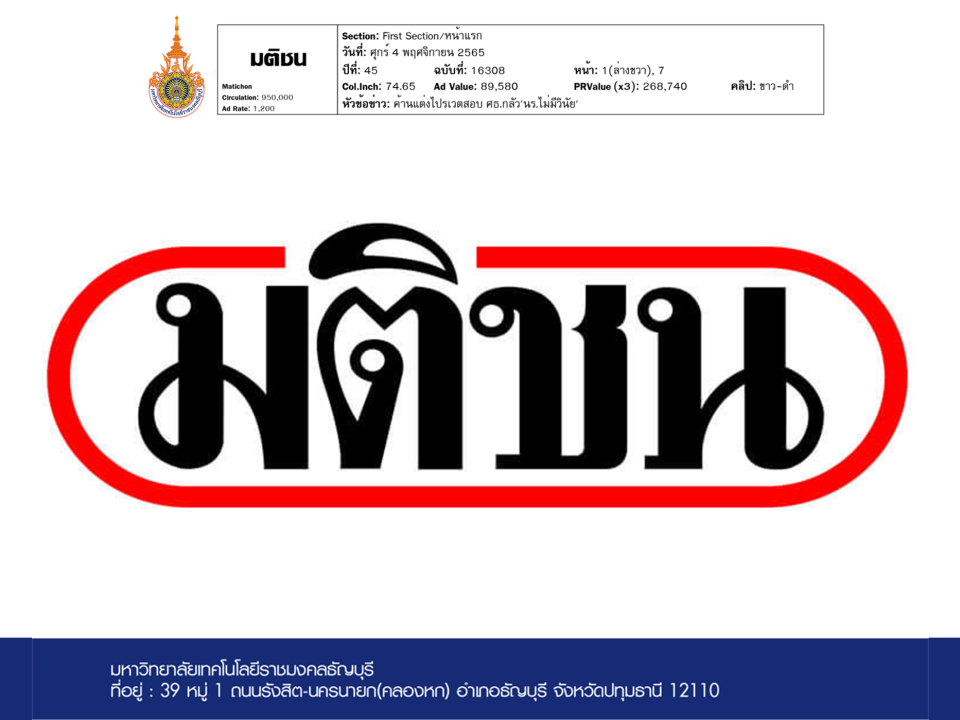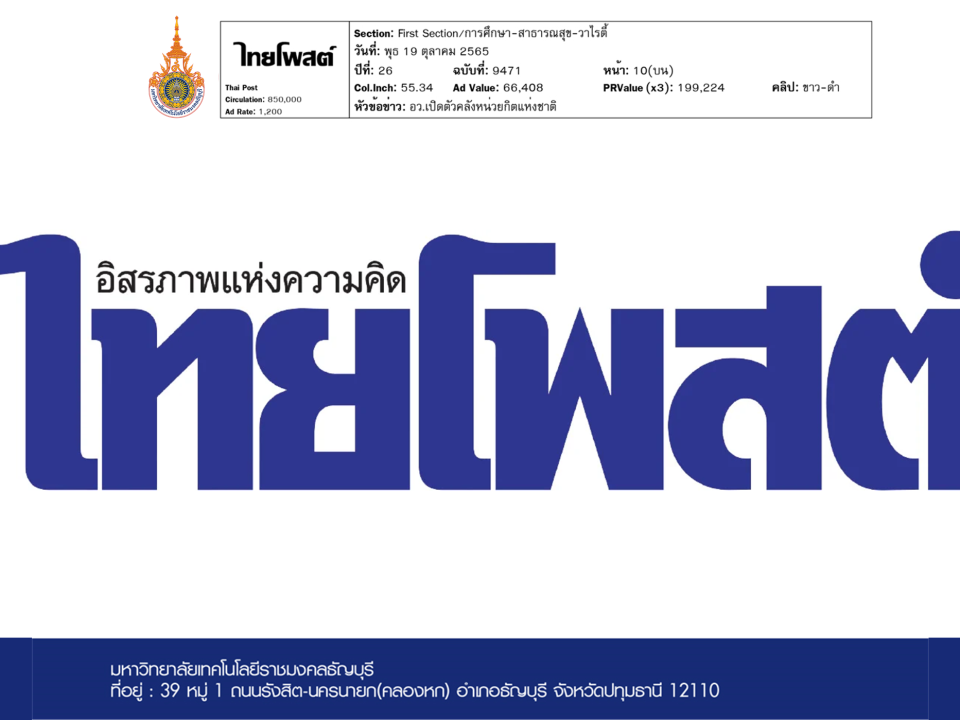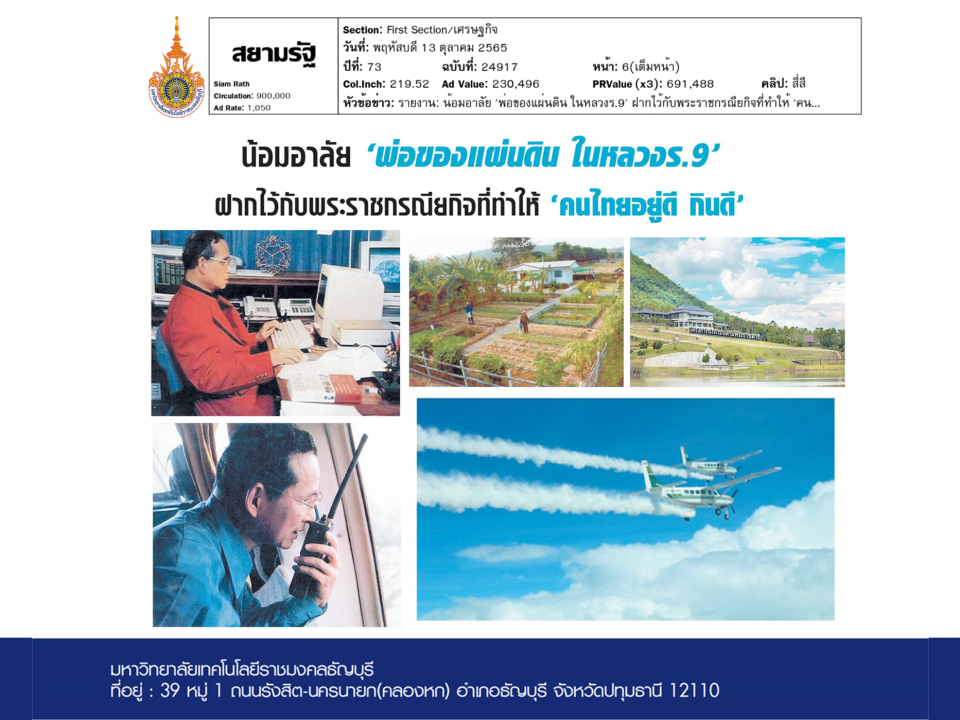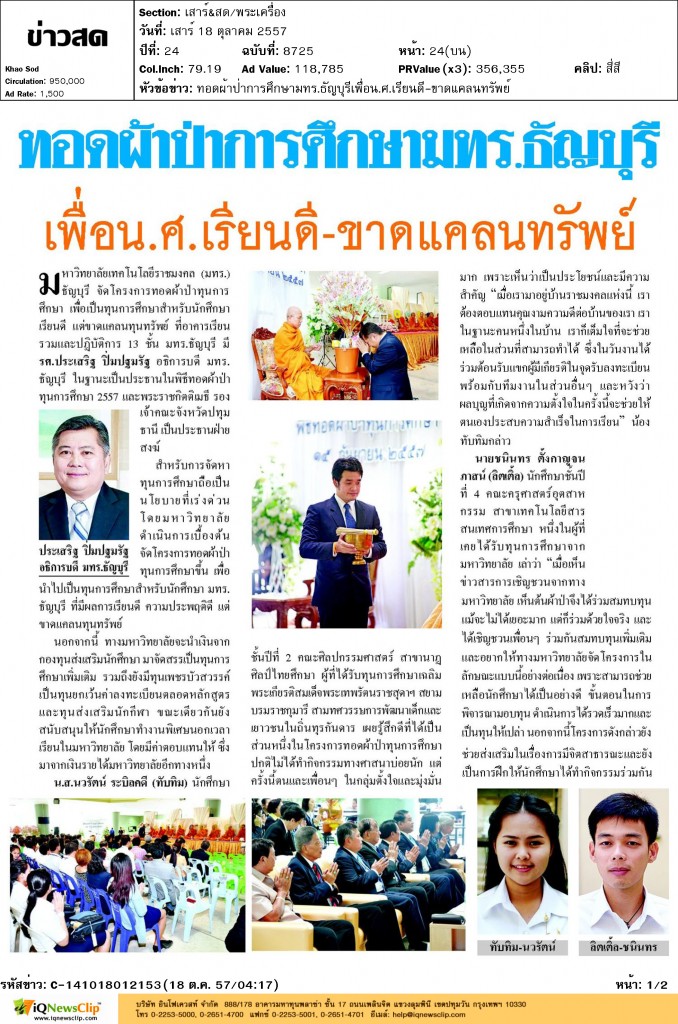
Merit-making Event to Support Scholarship Funds
26/02/2015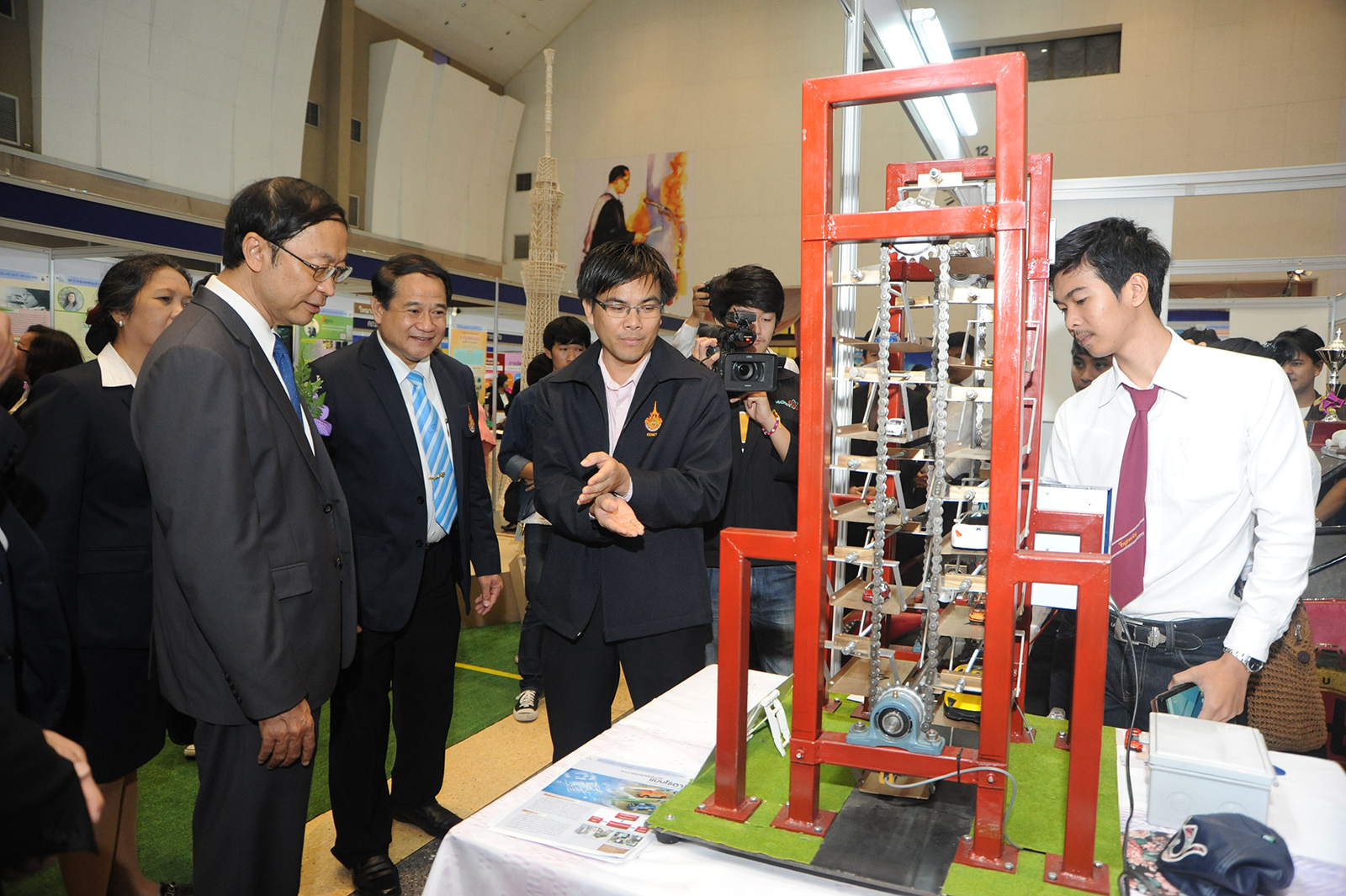
Rotary Parking System, a Parking Solution that Promises to Save Time and Energy
14/05/2015A study by Dr. Kornwinwit Boonpisutinan, lecturer at the Thai Traditional Medicine College, Rajamangala University of Technology Thanyaburi (RMUTT), was recognized at International Warsaw Invention Show (IWIS) 2014. The two award categories were: bronze medal, Special Award for the Most Stupendous Work of Innovative Invention Entitled, from Korea Invention News, and Special Award for the Best Innovation Presentation, from Chinese Innovation & Invention Society (CIIS).
Dr. Kornwinwit’s research was about using a local herb, Hypoxis Aurea Lour. (star grass), as an active ingredient in anti-aging cosmetics.
“The anti-aging properties of star grass came from its ability to reduce the enzyme called Tyrosinase, which is responsible for the production of melanin, or blemishes, leaving only Pheomelanin, which is lighter skin pigment. Essentially, it has skin whitening properties,” said Dr. Kornwinwit.
Another important property found during his study was its ability to help build collagen in the skin more effectively than vitamin C. Collagen is known as substance that helps maintain suppleness and smoothness of the skin. “This makes it an ideal ingredient for anti-aging cosmetic products because it can stimulate the skin to build collagen, which is different from other products that has collagen as an ingredient,” he said.
Dr. Kornwinwit’s discovery is beneficial to the research community as well as local consumers. “Cosmetic products that are available in the market usually contain expensive, imported chemicals. This not only means that the production cost is high, but also that there is a higher chance of skin allergies.
“I would like to encourage researchers to study into Thai herbs as an ingredient for cosmetic products, because they have been proven to be relatively safe and there is an abundance supply of them in Thailand,” said Dr. Kornwinwit.
He also expressed appreciation for the university’s support. “I learned about other innovations that are taking place in both Asia and Europe and also learned about the work process and techniques of researchers from other countries,” he concluded.
For more information about this study, contact 0 2549 4994, 0 2592 1999 ext. 1204.
